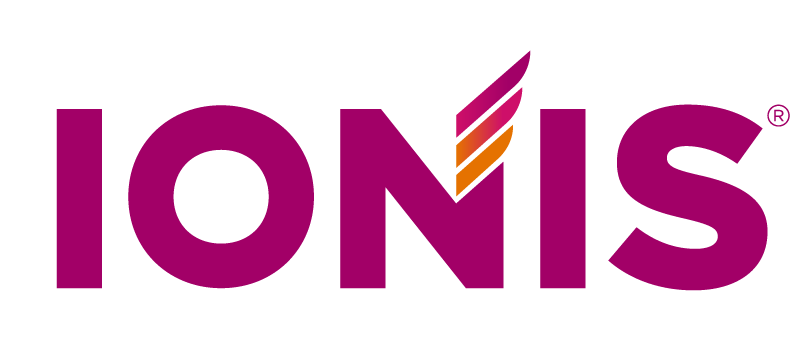Press Releases
Isis and Lilly Broaden Antisense Alliance To Include Discovery of Cancer Treatments
Isis Pharmaceuticals, Inc. (NASDAQ: ISIS), and Eli Lilly and Company (NYSE: LLY) announced today that they have expanded their antisense drug discovery collaboration. Under the two-year agreement, Isis and Lilly will collaborate to discover antisense drugs to inhibit specific gene targets associated with cancer. The expanded collaboration will focus initially on several antisense preclinical compounds, including ISIS 23722, directed at cellular regulators of cancer cell death, or apoptosis. The cancer collaboration builds on the broad, strategic alliance the companies forged in August 2001, to among other things, discover antisense drugs in the areas of inflammatory and metabolic diseases. As part of the deal signed last year, Lilly also in-licensed Affinitac™, an antisense inhibitor of PKC-alpha (a drug target that is overexpressed in multiple tumors), which is currently in Phase III clinical trials for the treatment of non-small cell lung cancer.
"We are very pleased to have extended our drug discovery relationship with Lilly into the oncology field," said Stanley T. Crooke, M.D., Ph.D., Isis chairman and chief executive officer. "Lilly has already made a strong commitment to antisense technology, and we are extremely optimistic that our technology will provide Lilly with a highly competitive advantage in the marketplace for many years to come."
"Our expanded collaboration with Isis reinforces Lilly's leadership in oncology drug development by leveraging cutting-edge antisense technology in our cancer drug discovery program," said Homer Pearce, Ph.D., vice president of cancer research and clinical investigation for Lilly. "Based on encouraging early clinical trial results for Affinitac, we are keenly interested in teaming up with Isis, the antisense pioneers, to address challenging drug discovery targets that have been inaccessible using conventional approaches."
Antisense inhibitors work at the molecular level by binding to messenger RNA to interrupt the process by which disease-related proteins are produced. Antisense inhibitors can be used as functional genomics tools or as drugs. Antisense drugs can be designed to treat a wide range of diseases. Due to their gene selectivity, they have the potential to be highly effective and less toxic than traditional small molecule drugs.
Isis Pharmaceuticals, Inc., is exploiting its expertise in RNA to discover and develop novel human therapeutic drugs. The company has commercialized its first product, Vitravene® (fomivirsen), to treat CMV-induced retinitis in AIDS patients. In addition, Isis has 13 antisense products in its development pipeline with two in late-stage development and six in Phase II human clinical trials. Affinitac™, an inhibitor of PKC-alpha, is in Phase III trials for non-small cell lung cancer, and alicaforsen (ISIS 2302), an ICAM-1 inhibitor, is in a Phase III trial in Crohn's disease. Isis has a broad patent estate as the owner or exclusive licensee of more than 900 issued patents worldwide. Isis' GeneTrove™ division uses antisense to assist pharmaceutical industry partners in validating and prioritizing potential gene targets through customized services. Ibis Therapeutics™ is a division focused on the discovery of small molecule drugs that bind to RNA. Additional information about Isis is available at www.isispharm.com.
Lilly is a leader in oncology and is committed to providing comprehensive solutions – answers that matter – for oncologists and cancer patients around the world. It seeks to answer complex, difficult problems through the discovery and development of breakthrough medicines as well as through research and development collaborations with leading companies and universities that offer access to additional technology and compounds. Lilly oncology's cornerstone cancer product, Gemzarâ, is marketed in more than 90 countries. It is the standard of care worldwide for pancreatic cancer. Gemzar in combination with cisplatin is approved for locally advanced or metastatic non-small-cell lung cancer in the U.S. and as a single agent and in combination with cisplatin in Europe. Gemzar also continues to be approved in many countries for bladder cancer. Additionally, Lilly has a number of compounds in development for a variety of cancers. The strength of the Lilly oncology program is not simply its size but the variety of approaches it takes in attacking cancerous cells. Lilly oncology's pipeline includes cytotoxics, cytostatics, and targeted therapy.
Lilly, a leading innovation-driven corporation, is developing a growing portfolio of best-in-class pharmaceutical products by applying the latest research from its own worldwide laboratories and from collaborations with eminent scientific organizations. Headquartered in Indianapolis, Ind., Lilly provides answers – through medicines and information – for some of the world's most urgent medical needs. Additional information about Lilly is available at www.lilly.com.
This press release contains forward-looking statements regarding Isis Pharmaceuticals
and its partnership with Eli Lilly and Company, the potential of the companies'
antisense drug discovery partnerships, and the development and therapeutic potential
of Affinitac. Any statement describing a goal, expectation, intention or belief
of Isis or Lilly is a forward-looking statement and should be considered an
at-risk statement. Such statements are subject to certain risks and uncertainties,
particularly those inherent in the process of discovering, developing and commercializing
drugs that are safe and effective for use as human therapeutics and financing
such activities. Affinitac has not been proven safe and effective and there
are no guarantees that it will receive regulatory approvals or prove to be commercially
successful. Actual results could differ materially from those projected in this
release. As a result, you are cautioned not to rely on these forward-looking
statements. These and other risks concerning the research of Lilly or Isis research
and development programs are described in additional detail in the companies'
Annual Reports on Form 10-K, for the period ended December 31, 2001, and subsequent
quarterly reports on Form 10-Q which are on file with the U.S. Securities and
Exchange Commission, copies of which are available from both companies. The
companies undertake no duty to update forward-looking statements.
